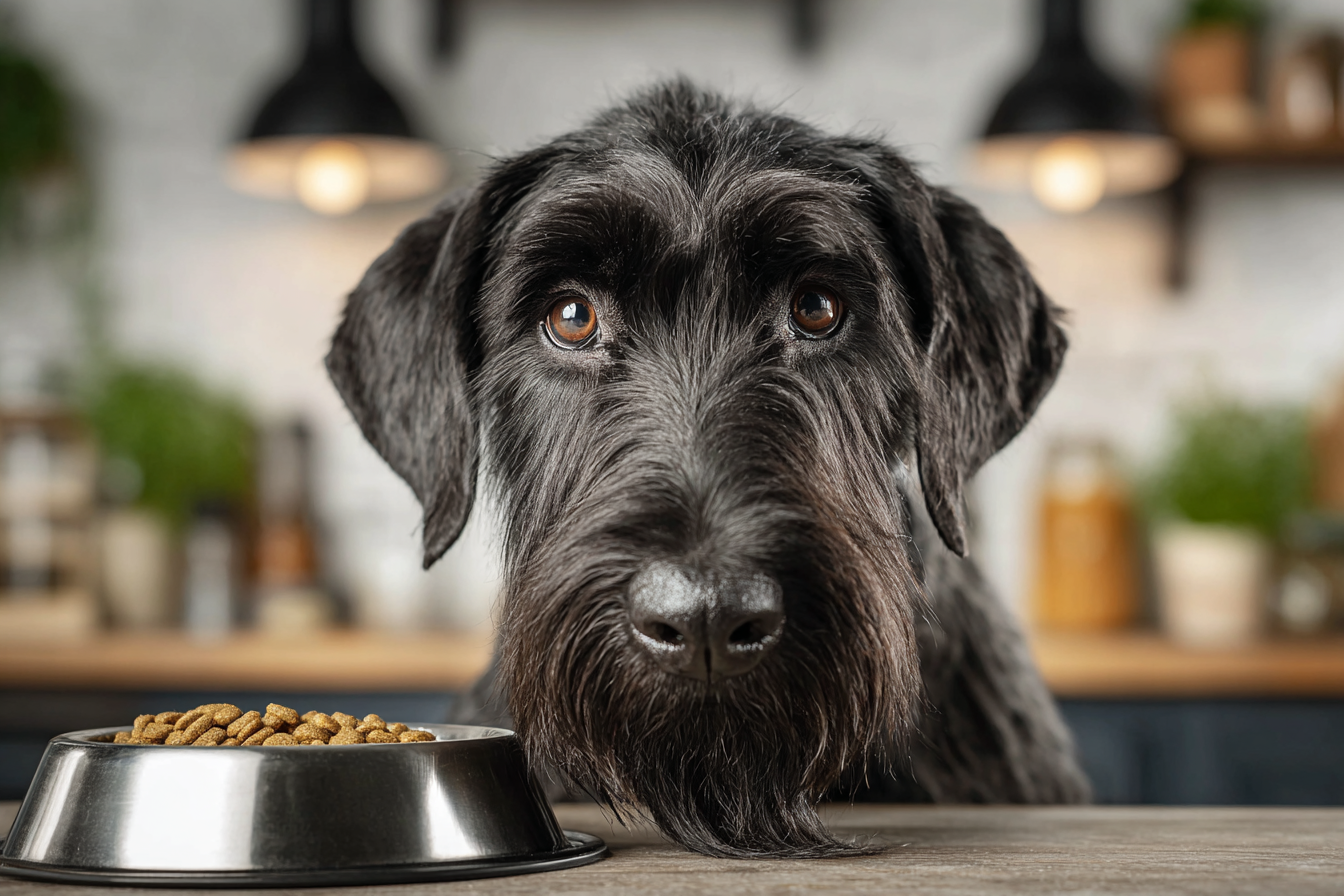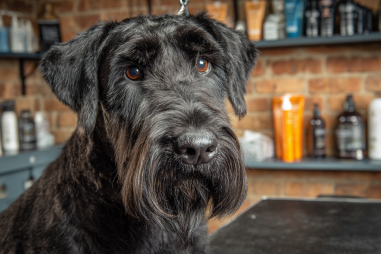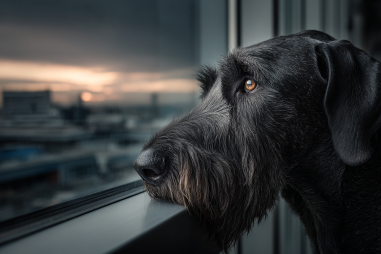Proper nutrition plays a crucial role in ensuring your Giant Schnauzer remains healthy, energetic, and vibrant throughout its life. This impressive breed, known for its loyalty, intelligence, and strength, demands a diet tailored to support its unique physiological and activity needs. Understanding what to feed your Giant Schnauzer, how often, and which foods to avoid can make a significant difference in their overall well-being. Let’s dive into an in-depth guide to the best nutrition practices for your furry companion.
Nutritional Requirements of Giant Schnauzers
Giant Schnauzers are large, muscular dogs with high energy levels and a propensity for activity. Their nutritional needs reflect their size, activity, and metabolism. A balanced diet rich in high-quality protein is essential to maintain their muscle mass and support overall growth. Proteins should ideally come from animal-based sources such as chicken, beef, lamb, or fish. This helps provide the amino acids necessary for muscle repair and immune function.
Besides protein, fats are an important energy source for Giant Schnauzers. Healthy fats such as omega-3 and omega-6 fatty acids contribute to a shiny coat, healthy skin, and better cognitive function. Carbohydrates provide energy but should be given in moderate amounts, preferably in the form of complex carbs like sweet potatoes, brown rice, or oats to avoid blood sugar spikes.
Vitamins and minerals also play a vital role in supporting bone health, immune system, and overall cellular functions. Calcium and phosphorus are particularly important due to the breed’s large frame and active lifestyle to maintain strong bones and joints. Hydration is just as important, so always ensure that your Giant Schnauzer has access to fresh water.
Recommended Diets and Food Types
Choosing the right diet for your Giant Schnauzer boils down to quality and balance. Many owners opt for commercial dog foods formulated for large breeds, which tend to have nutrient profiles tailored to meet their specific requirements. Look for products that list meat as the first ingredient and avoid those with excessive fillers like corn or wheat.
Raw or homemade diets are also popular but require careful planning to ensure all nutritional needs are met. A raw diet often includes muscle meat, organ meat, bones, and certain fruits and vegetables. If you decide on this route, consult with a veterinarian or canine nutritionist to get the balance right and avoid deficiencies or excesses.
Some Giant Schnauzer owners prefer grain-free diets or limited ingredient foods because of potential sensitivities. While grain-free isn’t necessary for all dogs, it can help if your pet has allergies or digestive issues. Additionally, certain commercial diets support joint health specifically tailored for large breeds, including glucosamine and chondroitin supplements.
Avoiding Harmful Foods
Just as important as knowing what to feed your Giant Schnauzer is knowing what foods to avoid. Some human foods can be toxic or harmful to dogs and should never be given as treats or part of their meals. These include:
- Chocolate
- Grapes and raisins
- Onions and garlic
- Avocado
- Alcohol
- Xylitol (found in sugar-free gum and candies)
- Excessive salt or fatty foods
Feeding your Giant Schnauzer table scraps or foods high in sugar and fat can lead to obesity, pancreatitis, and digestive upset. It’s important to maintain discipline in what you offer and educate family members about these dangers. Additionally, bones that splinter easily, like cooked chicken bones, should be avoided to prevent choking or internal injuries.
Feeding Schedules and Portion Control
Large breed dogs like Giant Schnauzers benefit from well-structured feeding schedules to prevent overeating and digestive issues such as bloat. Typically, feeding adult Giant Schnauzers twice a day—morning and evening—is recommended. Puppies may need more frequent meals, around three to four times daily, gradually transitioning to twice a day as they grow.
Portion control is essential to maintain a healthy weight and avoid obesity-related problems like joint stress and heart disease. The amount of food your dog needs depends on age, activity level, metabolism, and the calorie content of the food. As a general guide:
- Active adult Giant Schnauzers typically require 2.5 to 3.5 cups of dry dog food per day, split into two meals.
- Puppies require a higher calorie density but should adjust portions according to growth and veterinarian advice.
- Always adjust based on your dog’s body condition score (BCS), increasing or decreasing portions if your dog gains or loses weight.
Regularly assess your Giant Schnauzer’s weight and consult your vet to fine-tune feeding amounts. Avoid free-feeding (leaving food out all day) to prevent overeating and promote routine.
Supplements and Vitamins
While a well-balanced diet can meet most nutritional needs, supplements can be beneficial for Giant Schnauzers, especially to support joint health and immune function. Common supplements to consider include:
- Glucosamine and Chondroitin: Helps maintain healthy cartilage and can reduce the risk or impact of arthritis.
- Omega-3 Fatty Acids: Supports skin, coat, and cognitive function. Found in fish oil supplements.
- Probiotics: Enhance digestive health by promoting beneficial gut bacteria.
- Multivitamins: May be advisable if your Schnauzer is on a homemade diet or has specific deficiencies.
Always consult your veterinarian before adding supplements to your Giant Schnauzer’s diet. They can provide recommendations based on individual health status and any medical conditions.
Tips for Picky Eaters
Some Giant Schnauzers can be finicky with their food, which might frustrate owners trying to provide balanced nutrition. Here are a few tips to encourage better eating habits:
- Stick to a Routine: Feed your dog at the same times daily and remove any uneaten food after 15-20 minutes. This encourages regular eating habits.
- Enhance Flavor: Try mixing in a small amount of wet food, warm water, or low-sodium broth to make meals more enticing.
- Limit Treats: Excessive treats may reduce your dog’s appetite for their main meals.
- Check for Health Issues: Loss of appetite can sometimes indicate dental problems or illnesses. Always rule out underlying health problems with your vet.
- Gradually Introduce New Foods: When changing diet or introducing new foods, do it gradually to avoid digestive upset and give your dog time to adapt.
With patience and attention, most picky Giant Schnauzers can be guided toward healthier eating habits that support their overall well-being.
Supporting Your Giant Schnauzer’s Longevity Through Nutrition
Feeding your Giant Schnauzer a well-balanced diet tailored to their specific needs is one of the best investments you can make in their health. By understanding their nutritional requirements, selecting the right diets, avoiding harmful foods, and incorporating proper feeding practices, you are setting the foundation for a strong and energetic companion. Remember, each Giant Schnauzer is unique, so regular vet checkups to monitor weight, health, and dietary needs will ensure your dog thrives throughout every stage of life.







